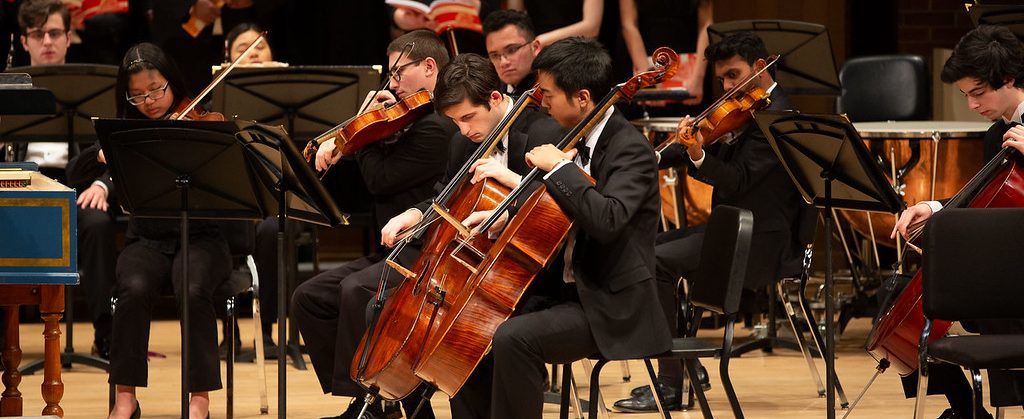
Performer's Certificates
The program of study leading to the Performer’s Certificate in Music is intended to provide a concentrated course of study in performance for outstanding musicians who have completed a Bachelor’s or Master’s degree from a university or music conservatory in the United States or an international equivalent. Under the guidance of artist-teachers, students study applied music, participate in chamber music, repertory/coaching (voice), and perform in a major ensemble.
The Performer’s Certificate is intended to be completed in one academic year (in consecutive fall and spring semesters). Nine credits are required in the Fall semester and three in the Spring, for a total of twelve credits. Credits earned in a certificate program may not be applied later to any degree program at the University of Connecticut. Specific information on the types of Performer’s Certificates, listed below, is available in the Handbook for Graduate Music Students.
Master's Programs
The Master of Arts in Music is awarded in recognition of demonstrated accomplishment in the field of music, with special emphasis in historical musicology or theory. The Master of Music is awarded in recognition of musical accomplishment with special emphasis in performance or conducting. The master’s degree programs require 24 to 30 credits of course work (depending upon the specialty). The Master of Arts program also requires 9 research credits (Grad 5950), plus a thesis which does not receive specific numerical credit. Students in performance must present a public recital.
New students must take the Graduate Theory Placement Examination as part of the application process. (See the description on the Admission page.) On the basis of this test, some students will be required to complete Music 4371 (Theory Review) in their first semester, as a prerequisite to the required course, Music 5302 (Analytic Techniques). The examination may be taken at any time. Please call the UConn Music Department at (860) 486-3728 to make an appointment.
The following outlines list the courses and credits required for each masters program. A complete listing of individual courses and course descriptions is given in the Graduate Catalog. For other requirements, see Requirements & Standards for Graduate Study and Final Requirements as indicated.
For the Master’s Degree Plan of Study, please click here.
Doctoral Programs
The Doctor of Musical Arts degree is the highest practice-oriented degree in the field of music. It is intended to give persons of outstanding ability the opportunity to become creative contributors in both performance and scholarship. The Doctor of Philosophy in Music is awarded in recognition of distinguished scholarly achievement in the field of music. The acquisition of the degree testifies to the mastery of the general subject of music, to a concentration of knowledge or skill in some specialty within the field of music, and to the acquisition of research skills applicable to the activities of scholarship and teaching in music.
It is important for students to realize that work towards a doctoral degree is not merely a matter of accumulating course credits or of satisfying other requirements. The degree will be conferred only after the Advisory Committee and the Graduate Faculty are convinced that the student has developed independence of judgment and mature scholarship in the chosen field.
The following outlines list the courses and credits required for each doctoral program. A complete listing of individual courses and course descriptions is given in the Graduate Catalog. For other requirements, see Requirements & Standards for Graduate Study and Final Requirements as indicated.